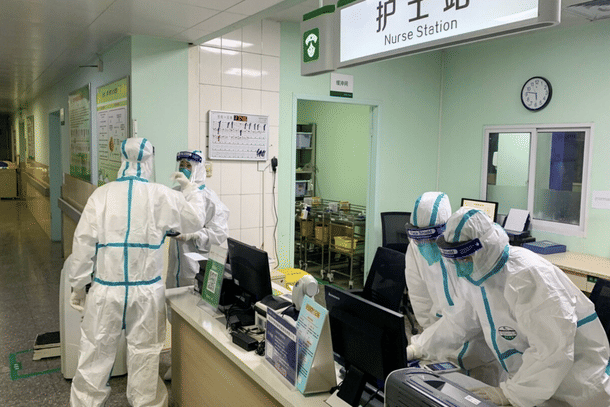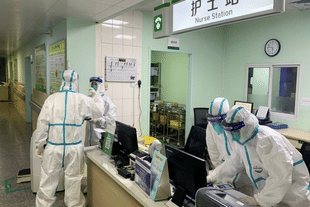News Brief
Rising Pneumonia Cases In China: Beijing Provides Data Sought By WHO, Claims No "Unusual Or Novel" Virus Behind The Respiratory Illnesses
Swarajya Staff
Nov 24, 2023, 10:53 AM | Updated 10:53 AM IST
Save & read from anywhere!
Bookmark stories for easy access on any device or the Swarajya app.


The World Health Organization (WHO) announced on Thursday (23 November) that China has reported no detection of unusual or new pathogens in the recent increase of respiratory illnesses among children in the north, following WHO's request for detailed information from Beijing.
From the middle of October 2023, the World Health Organization has been monitoring data from surveillance systems in China, which indicate a surge in respiratory diseases among children in the northern regions of the country.
Late on Wednesday, the UN health agency announced that it had formally asked Beijing for additional data. However, there was no public response from the Chinese government on Thursday.
The WHO said it held a teleconference on Thursday with the Chinese Center for Disease Control and Prevention and the Beijing Children's Hospital, facilitated by the National Health Commission and the National Administration of Disease Control and Prevention.
According to the WHO, the Chinese health authorities provided requested data which indicated "an increase in outpatient consultations and hospital admissions of children due to Mycoplasma pneumoniae pneumonia since May, and RSV, adenovirus and influenza virus since October".
"Some of these increases are earlier in the season than historically experienced, but not unexpected given the lifting of COVID-19 restrictions, as similarly experienced in other countries. No changes in the disease presentation were reported by the Chinese health authorities," it said.
"Chinese authorities advised that there has been no detection of any unusual or novel pathogens or unusual clinical presentations, including in Beijing and Liaoning, but only the aforementioned general increase in respiratory illnesses due to multiple known pathogens," the WHO said in a statement.
They further stated that the rise in respiratory illness has not resulted in patient loads exceeding hospital capacities, it added.
WHO said that it is closely monitoring the situation and is in close contact with national authorities in China, and will continue to provide updates as warranted.
The organization advised individuals in China to adhere to precautions that can lower the chances of contracting respiratory diseases.
This involves adhering to recommended vaccinations for flu, Covid-19, and other respiratory diseases; maintaining a safe distance from those who are sick; self-isolating when unwell; seeking testing and necessary medical attention; and utilizing masks when suitable.
"WHO does not recommend any specific measures for travellers to China," it added.





